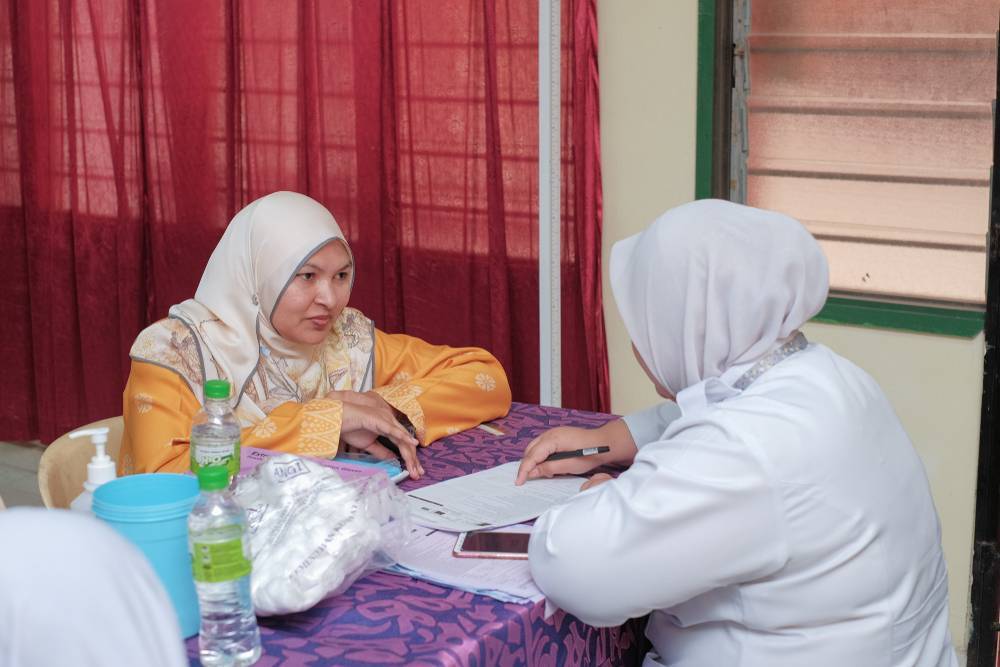The ROSE Foundation, a Malaysian NGO focused on the eradication of cervical cancer, became the first Asian winner of the Univants of Healthcare Award 2022 for their multidisciplinary efforts to spread awareness regarding cervical cancer screening.
The chairman of the ROSE foundation, Professor Dato’ Dr. Adeeba Kamarulzaman, stated that with more than 25,000 women screened, the foundation will continue its efforts and expand its use of healthcare-related technology. The foundation’s approach has managed to screen and enable early intervention for nearly 200 women with pre-cancer/ early-stage cancer.
Cervical Cancer In Malaysia
Cervical cancer is the second most common cancer among Malaysian women below 45 years old. The cancer develops in the cervix which acts as an entrance to the uterus from the vagina. Persistent Human Papillomavirus (HPV) infection is considered the main cause of cervical cancer. The virus is transmitted via sexual contact.
A report released by the Catalan Institute of Oncology (ICO) and the International Agency for Research on Cancer (IARC) estimates that 1740 women are diagnosed with cervical cancer and 991 succumb to the disease annually. Only 12.9% of Malaysian women undergo a pap smear once in their lifetime, which is usually after giving birth. The World Health Organisation has set a target of 70% HPV screening coverage for women aged 34 to 45.
ROSE Foundation’s Unyielding Fight Against Cervical Cancer
Removing Obstacles To Cervical Screening (Rose) Foundation is the result of the collaboration between the University of Malaya and the Australian Centre for Prevention of Cervical Cancer. Its current achievement is linked to an amazing initiative known as Programme Rose, a cervical screening programme that involves HPV self-sampling rather than the conventional pap smear. This initiative circumvents the barriers preventing women from getting screened for HPV. The self-swab test is quick, painless and effective.
The foundation also collaborates with multiple non-governmental organisations(NGOs) to conduct mobile screenings, especially in areas lacking access and amenities. The tests are then sent to the ROSE foundation’s own laboratory, and the results are delivered via SMS or Whatsapp. Women who test positive are then referred to the nearest tertiary healthcare facility for further management.
What To Look Out For?
Cervical cancer may present itself differently in different individuals. Most women may remain asymptomatic until the disease progresses, which makes treating it difficult. Cervical cancer can be effectively treated if detected early, which makes HPV screening extremely essential. When diagnosed early, the 5-year survival rate for patients is 91%. Otherwise, the 5-year survival rate is 19% if the cancer is detected once it has spread throughout the body.
Key things to look for include:
- Vaginal bleeding in between menstruation cycles
- Menstrual bleeding that is heavier or lasts longer than usual
- Pain during intercourse
- Bleeding after intercourse
- Pelvic pain
- Changes in vaginal fluid- more discharge/unusual colour or smell
- Vaginal bleeding after menopause
Doctor’s Insight
Professor Dr. Adeeba, who is also the President and Pro-Vice Chancellor at Monash University Malaysia, stated that no challenge is too big when efforts are invested in the right strategies, harnessing political will and meaningful partnerships. She spoke about her successful efforts in the fight against HIV in Malaysia.
“Serving as the president of the International AIDS Society and as chairman of the Malaysian AIDS Foundation and Rose Foundation, the latter being an organisation committed to eliminating cervical cancer in Malaysia and the region, I have witnessed the power of partnerships and collective action. In my experience with working with HIV, the two key factors for an effective HIV response are the coming together of stakeholders and effective advocacy. ,” said Professor Adeeba.
The ROSE foundation has integrated mobile phones with the eHealth platform to handle registrations and data collection processes. This is to help women in need to bypass unnecessary roadblocks in the effort to navigate the complex healthcare network. Professor Adeeba also stated, “Our vision for Malaysia is clear: a future where cervical cancer is a rare disease and where women have access to timely screenings and HPV vaccinations.’’
Call for Action
The ROSE Foundation has done an excellent job of mitigating the effects of cervical cancer in the lives of Malaysian women. However, it is vital to realise that the general public needs to play its role in the fight to eradicate cervical cancer. While it may appear daunting at first, screening for cervical cancer is simple, quick and painless. Since early detection can potentially lead to complete recovery, regular screening is of utmost importance.

